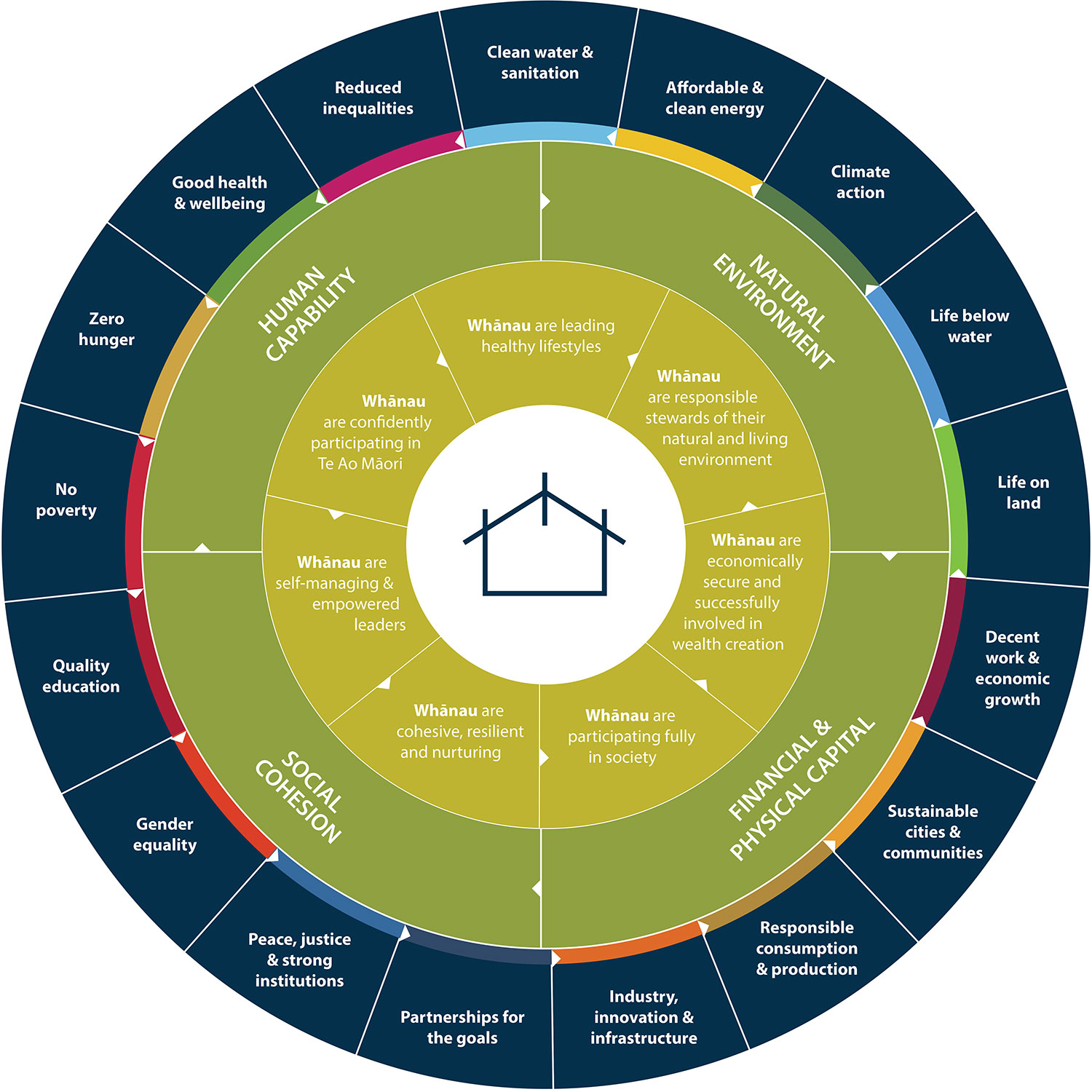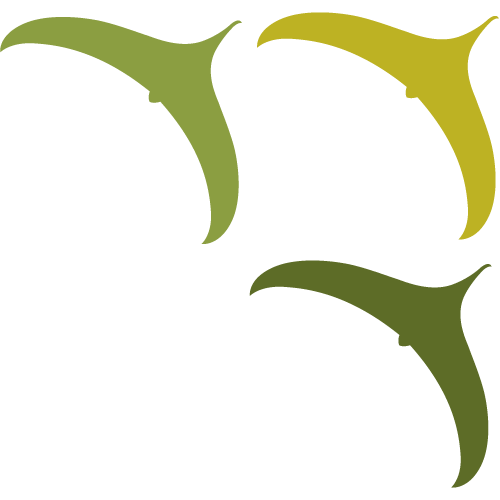Our Equity and
Wellbeing Framework
In order to identify opportunities and measure outcomes within our rohe, we have developed a 3-tier framework encompassing global, national and local equity and wellbeing frameworks.
Together these provide us with over 150 individual indicators which we are able to measure equity and wellbeing – acting as a benchmarking tool to begin to explore data insights within our rohe and identify priority areas that we will seek to understand in much more detail.
The purpose of this combination of global, national and local frameworks is to ensure that we encompass all elements of equity and wellbeing. Whilst the goals of each can be individually interpreted, each goal has a relationship to all other elements – as such, we have designed the framework to represent the most logical alignments.

Whānau Ora Goals
Whānau Ora is an innovative approach to improving whānau wellbeing that puts whānau at the centre of decision making. The Whānau Ora approach focuses on the whānau as a whole, and addresses individual needs within the context of the whānau.
Whānau are supported to identify the aspirations they have to improve their lives and build their capacity to achieve their goals.
The Outcomes Framework confirms that Whānau Ora is achieved when whānau are self-managing, living healthy lifestyles, participating fully in society, confidently participating in Te Ao Māori, economically secure and successfully involved in wealth creation, cohesive, resilient and nurturing and responsible stewards of their natural and living environments.
Treasury Living Standards
The Living Standards Framework (LSF) represents the Treasury’s perspective on what matters for New Zealanders’ wellbeing, now and into the future. It is a flexible framework that prompts our thinking about policy impacts across the different dimensions of wellbeing, as well as the long-term and distributional issues and implications.
It consists of the four Capitals (Natural, Human, Social and Financial and Physical) that support wellbeing now and into the future. These Capitals encompass the 12 domains of current wellbeing: Civic engagement and governance, Cultural identity, Environment, Health, Housing, Income and consumption, Jobs and earnings, Knowledge and skills, Time use, Safety and security, Social corrections and Subjective wellbeing.
17 Sustainable Development Goals
The 2030 Agenda for Sustainable Development, adopted by all United Nations Member States in 2015, provides a shared blueprint for peace and prosperity for people and the planet, now and into the future.
At its heart are the 17 Sustainable Development Goals (SDGs), which are an urgent call for action by all countries – developed and developing – in a global partnership. They recognise that ending poverty and other deprivations must go hand-in-hand with strategies that improve health and education, reduce inequality, and spur economic growth – all while tackling environmental and climate concerns and working to preserve our oceans and forests.
Get in touch
Our journey is your journey.
If you've got a story to tell or want to find out more about the Impact Collective, we'd love to hear from you.

